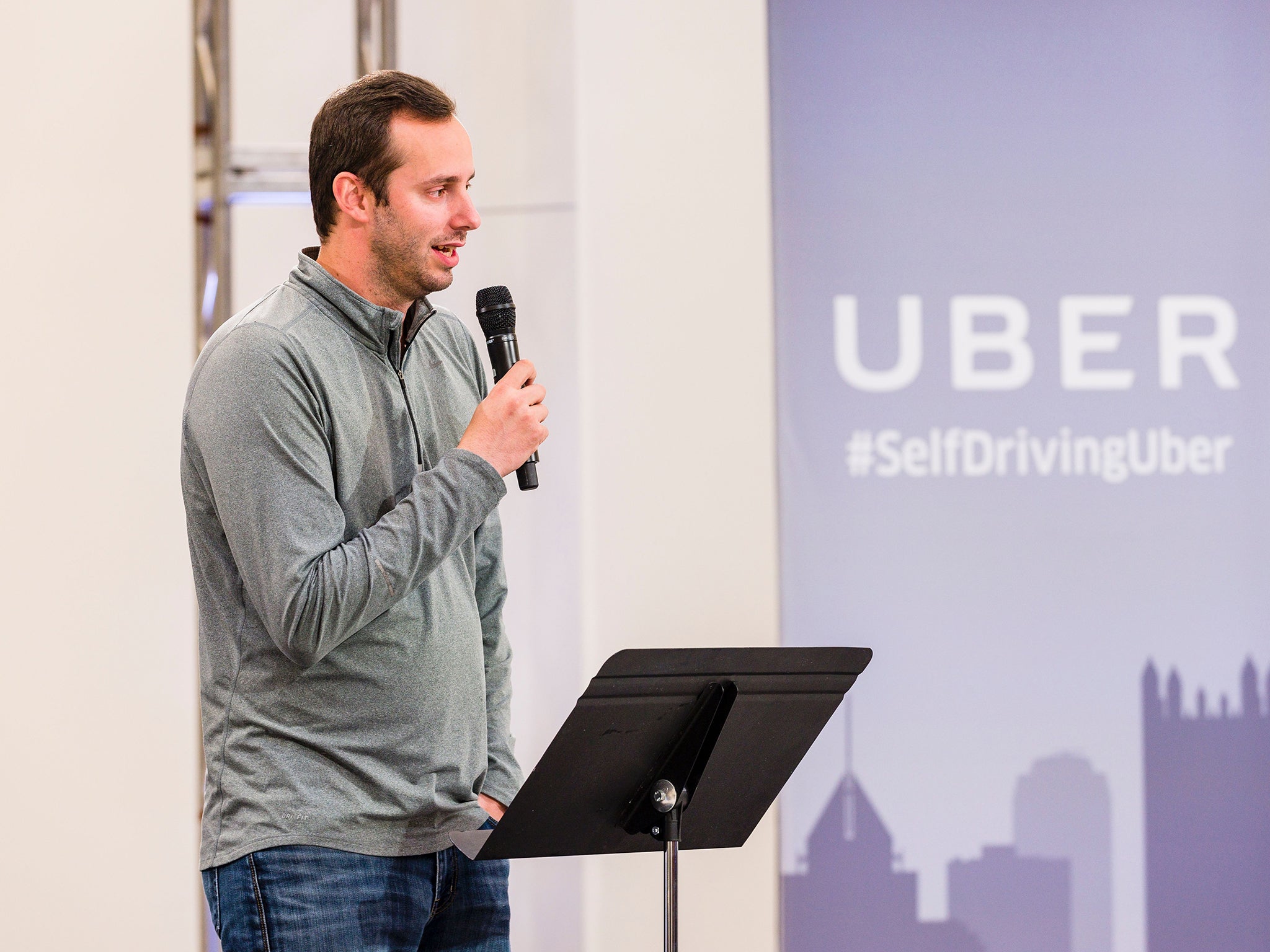Alexander Levandowski: Former Google executive pardoned by Trump shutters AI church and donates funds to NAACP
The former tech executive’s church worshiped artificial intelligence

A former tech executive at Google who was pardoned by Donald Trump has shuttered his church - which worshiped artificial intelligence - and donated its funds to the NAACP.
Anthony Levandowski, who founded Google's self-driving car initiative, Waymo, announced his Way of the Future church would close, and that he would give the money from the religious organisation to the National Association for the Advancement of Colored People, according to TechCrunch.
Mr Levandowski was pardoned by Mr Trump after he was caught swapping trade secrets between Uber and Google. After leaving Waymo in 2016, Mr Levandowski founded a self-driving truck startup called Otto, which was then bought by Uber. Waymo claimed Mr Levandowski's departure and later acquisition by Uber was planned with the intent to share Google proprietary intellectual property with the ride share company.
In total, Mr Levandowski donated a total of $175,172 to the NAACP's Legal Defence and Education Fund.
According to the story, Mr Levandowski was inspired to assist the NAACP in the wake of the George Floyd protests last summer, saying they were doing "really important work in criminal justice reform."
Mr Levandowski managed to escape his own brush with the criminal justice system thanks to Mr Trump's pardon. He was found guilty of stealing trade secrets and was sentenced to 18 months in prison.
The former Google executive did not give TechCrunch an explanation for closing his church, but he indicated he had been considering doing so for some time.
The church never had a physical location, and did not appear to host regular meetings or engage in any kind of ceremony or ritual.
According to the now-defunct church, its aim was to promote the ethical development of artificial intelligence with the hopes that the technology would be introduced peacefully into human society and that it would work to benefit mankind.
The church believed that the development of artificial intelligence with computational abilities far beyond that of humans was inevitable.
“Wouldn’t you want to raise your gifted child to exceed your wildest dreams of success and teach it right from wrong versus locking it up because it might rebel in the future and take your job?” the WOTF church argued. “We want to encourage machines to do things we cannot and take care of the planet in a way we seem not to be able to do so ourselves. We also believe that, just like animals have rights, our creation(s) (‘machines’ or whatever we call them) should have rights too when they show signs of intelligence (still to be defined of course). We should not fear this but should be optimistic about the potential.”
Mr Levandowski's views on artificial intelligence have not changed, despite his closure of the church.






Join our commenting forum
Join thought-provoking conversations, follow other Independent readers and see their replies
Comments